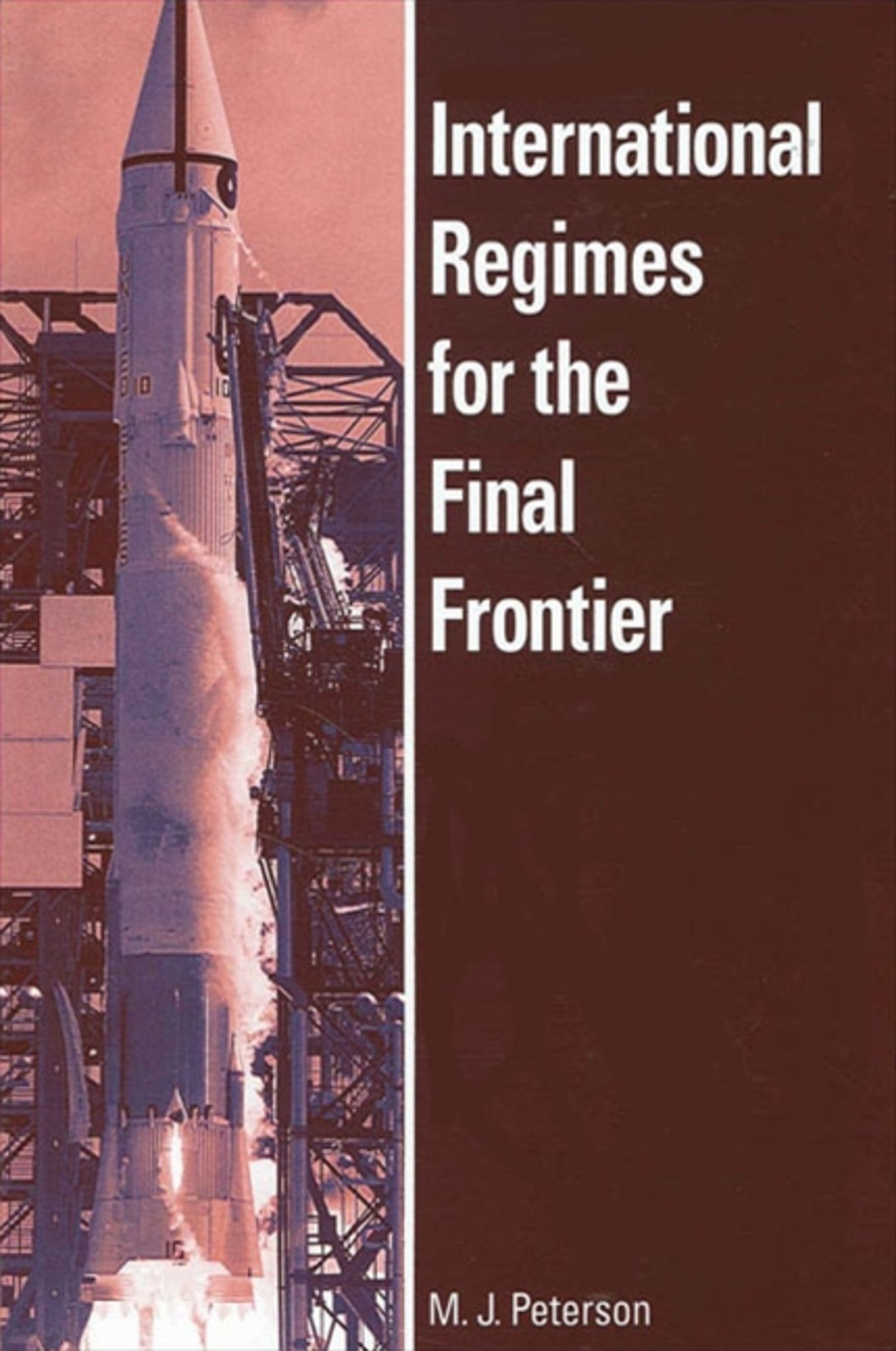We're sorry. An error has occurred
Please cancel or retry.
International Regimes for the Final Frontier

Some error occured while loading the Quick View. Please close the Quick View and try reloading the page.
Couldn't load pickup availability
- Format:
-
01 June 2006

Examines the negotiations between nations that lead to international agreements regulating human activity in outer space.
Neither rational choice theory, with its emphasis on interest calculation, nor sociological institutionalist theory, with its emphasis on identity-defined rule following, indicates how governments determine which of their multiple interests or identities are at stake in a particular situation or how they develop mutual comprehension of each other's goals. International Regimes for the Final Frontier addresses these gaps by tracing how governments approach an unfamiliar issue-in this case, international agreements regulating human activity in outer space between 1958 and 1988-and examines three ways situation definitions channel governments' approaches to issues or problems.


"International Regimes for the Final Frontier goes a long way in encouraging the progressive development of international law in the new field of space law, not only because of the nature of the major topics involved in this ever-growing discipline but also because of the clarity with which the different chapters are addressed … Two of the most striking features of [Peterson's] book are that it is useful to both academics and practitioners and that, although published in 2005, it remains quite relevant." — American Journal of International Law
"This book is a rare find: a work that simultaneously makes contributions to the scholarly understanding of the politics of outer space and to political science. It has the signal virtue of being based on extensive archival research. The empirical material vastly surpasses the scattered and largely speculative literature on the actual negotiations on outer space regime formation." — Daniel H. Deudney, Johns Hopkins University
Preface
Affiliations of Authors Involved in Space Negotiations
1. Creating Regimes for "The Final Frontier"
Actors, Social Structures, and Interaction
Situation Definitions and Interaction
The Patterns of Space Activity, 1957–1988
Plan of the Study
2. The Institutional Context of Negotiations
Fundamental Institutions of the States System
The UN Forums
Participants in the Negotiations
Implications of the Two Levels of Institutions
3. The Locational Classification of Outer Space
Classifying Outer Space as a Location
Reasoning by Analogy
Selecting the Initial Analogy for Classifying Outer Space
Moving to Multiple Analogies
Delimiting the Outer Space Commons
Explaining Preference Formation, Preference Aggregation, and Negotiation Outcomes
4. Aspects of Spaceflight
Appreciating the Registration and Rescue Problems
The Soviet Initiative on Rescue of Space Crews
The French Initiative on Registration
Explaining Preference Formation, Preference Aggregation, and Negotiation Outcomes
5. Liability for Damage on Earth
Appreciating the Situation
Setting the Broad Parameters and Resolving the Uncontentious Questions
Resolving the Acute Disagreements
Explaining Preference Formation, Preference Aggregation, and Negotiation Outcomes
6. Military Activity in Outer Space
Appreciating the Situation
From "Outer Space" to "Space" and "Celestial Bodies"
Confirming the Separation and the Different Rules
Explaining Preference Formation, Preference Aggregation, and Negotiation Outcomes
7. Exploring and Using the Moon
Appreciating the Situation
Providing Reassurance
Contending over Resource Management
Explaining Preference Formation, Preference Aggregation, and Negotiation Outcomes
8. The Orbit-Spectrum Resource
Appreciating the Situation
Bringing Space Uses into the Radio Regime
The Third World Drive for Comprehensive Planning
Elaborating the Mixed Access Rule
Explaining Preference Formation, Preference Aggregation, and Negotiation Outcomes
9. Situation Definitions in the Outer Space Negotiations
Establishing Situation Definitions
The Impact of Situation Definitions on Preference Formation
The Impact of Situation Definitions on Preference Aggregation
The Impact of Situation Definitions on Negotiation Outcomes
Situation Definitions and Explanations of Actor Conduct
The Future of the Space Treaties
Notes
Bibliography
List of Titles, SUNY series in Global Politics
Index



